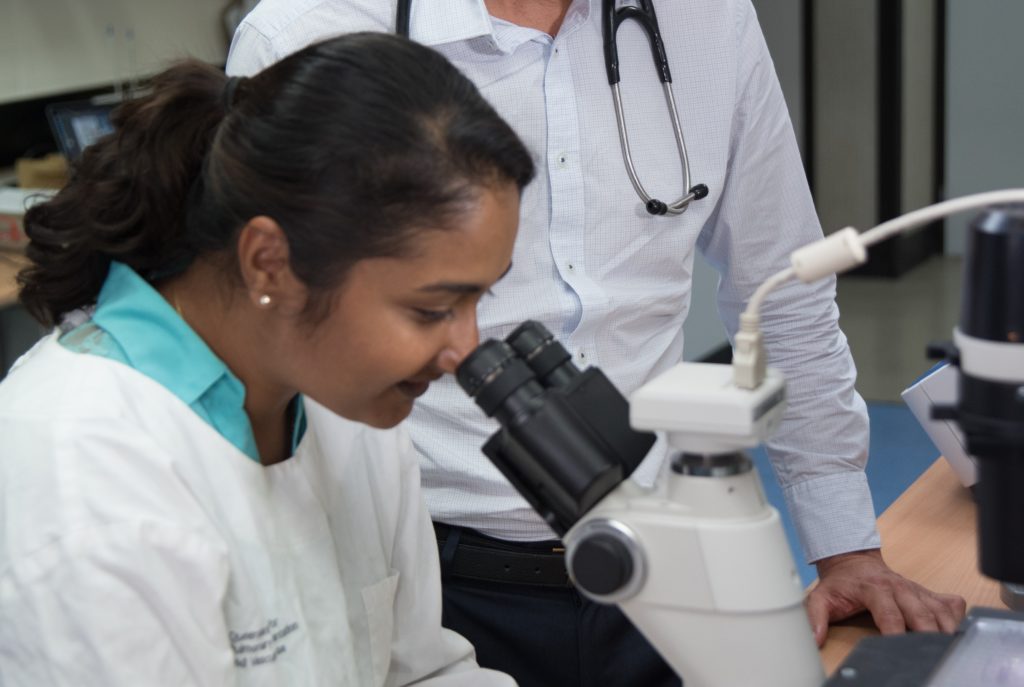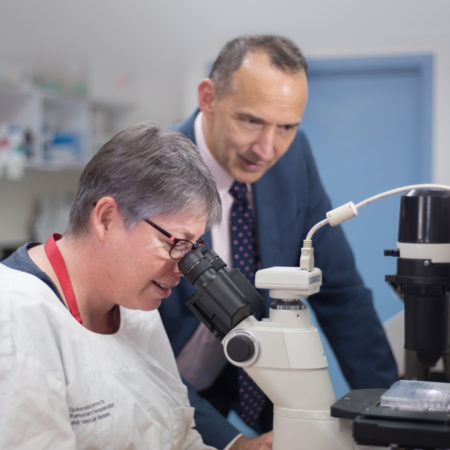Clinical trials play a key role in driving discoveries for new treatments, ways to manage conditions and search for cures. They also offer access to new treatments, which gives hope for many people who may have exhausted several other options already available to them. But clinical trials are not for everyone, nor is everyone eligible to take part.
So what are the things you need to know, if you are considering taking part in a clinical trial?
There are many types of clinical trials which often occur in ‘phases’. Generally speaking, the earlier the phase the newer the drug or treatment is – for example a phase 1 clinical trial is considered early phase.

During the earlier phase trials (phase 1 and 2), researchers are looking for information about the drug itself such as how long it may last in your system, and any side effects it may cause. The type and phase of a clinical trial can have an impact on how much of your time is required to take part which can vary from being fairly simple to quite complex. Earlier phase trials involve more visits to the clinic so your doctor can keep a close eye on you and the treatment’s side effects.
Whilst this is beneficial to you and your progress, sometimes this is one of the key deciding factors in determining if that clinical trial is right for you. It means that you need to balance work, hobbies and family commitments with trial visits.
Clinical trials that are later in their phase, such as phase 3, are often where a new drug or treatment is compared to a standard or widely available treatment. These trials tend to have a higher number of participants recruited and generally follow standard clinic visits, which means that you would normally go and see your doctor at the same time.
Another thing to remember when considering taking part in a clinical trial is that sometimes you may not be eligible to take part. There are eligibility criteria that your doctor can take you through to ensure you are able to take part.
If for some reason you are not eligible, try not to get disheartened, your doctor may have alternative trial options to consider.
It is still worthwhile asking about clinical trials each time you see your doctor to ensure that you can be considered when trials become available.
If you’re interested in clinical trials, or thinking about taking part, it’s important to know as much as possible about the trial and your involvement in it.
Below are some questions to ask your health professionals:
- What is the aim of the trial?
- How will it help people?
- Has it been tested before?
- What were the outcomes?
- What is involved in the trial?
- What tests and treatments are required?
- Will the trial use a placebo to compare with the new intervention?
- What are the benefits and risks of this clinical trial?
- How could this trial affect my day-to-day life?
- How much of my time will it take?
- Will I have to take my regular medications while participating in the trial?
- What side effects might I experience?
- How long does the trial go for?
- Is there any cost involved?
- Who can I contact for support?
- How long will it be before the results of the trial are available?
If you want to know more about clinical trials that may be relevant to you, it is best to consult with your health professional. To learn about current clinical trial opportunities, follow the link below.

Pulmonary Fibrosis Clinical Trials
The Pulmonary Fibrosis Australasian Clinical Trials Network (PACT) is a network of passionate leading clinicians and researchers from across Australia and New Zealand who are working with Lung Foundation Australia to design and implement clinical trials and studies that will improve outcomes for people living with PF. These trials and studies will help discover new advances in the diagnosis, treatments and management of this devastating disease and providing hope to Australians impacted.


